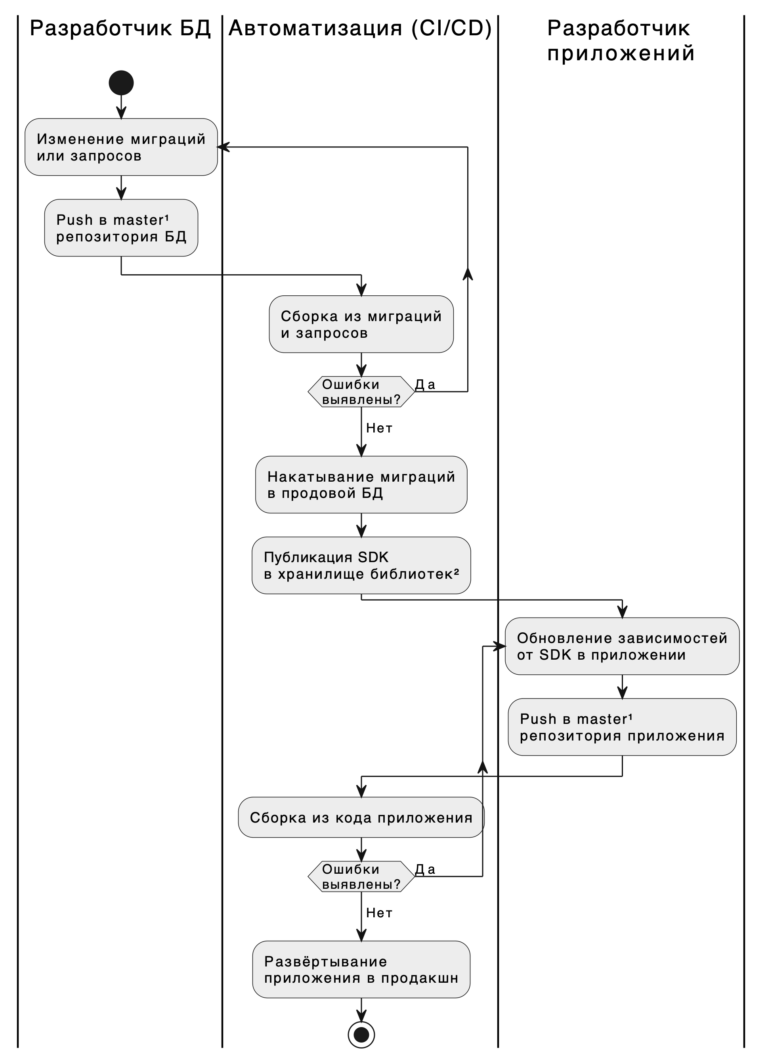Quarantined small business: panic is the enemy of reason

Do not torture cats! But take the office flowers home for a while or do not forget to water with a margin 🙂
This article was not in our content plan, and frankly, the pandemic situation is not the best time for peppy publications. But two things bothered us: the confusion mentioned above and the flow of advertising from several online services. We will not be engaged in moralism and catch by the hand, just talk about remote work and its risks to the company. Moreover, we have remote employees in RegionSoft and this has never once in a few years prevented them from effectively selling, presenting and promoting our products in places – RegionSoft CRM and ticket system ZEDLine Support.
All right, stop talking – to the point.
We will not talk about trading companies, cafes, non-food stores, etc., that is, the B2C sphere, they will have a hard time and the tougher the situation, the more problematic it will be to keep the company in the form in which it entered into this year. Our text is for small B2B companies that are engaged in development, advertising, production for business and so on.
Do not panic and evaluate risks
Yes, the situation is not very pleasant right now. Due to the development of various media, the blogosphere and micro-communications, it looks several times worse than the situation in the same year 2009 – simply because almost everyone can speak “expertly” on the topic and contribute to the panic. However, do not drop everything and make hasty decisions. The fact is that in the case of telecommuting, and even against the backdrop of a general economic and social crisis, the company will probably decrease sales, increase costs and, as a result, reduce maneuvers, but it will be necessary to fulfill all obligations to staff, customers, partners, suppliers, etc.
- Assess the risks. If you have a small company, your space in the office center, where you can ensure epidemic safety, it is worth taking care of the office (cleaning, airing, change shoes, gels, wipes, etc.) and staying at work. Also a favorable factor is employees on personal vehicles.
- If there are employees who travel by loaded vehicles (metro, long routes, etc.), shift their arrival and departure times to the office by an hour and a half (to the side of the employee’s choice), when the transport rooms are free.
- Monitor the health status of employees – now is not the time for dying heroes. If the temperature is elevated, there is a cough or runny nose, feel free to send home with the prospect of a sick leave. However, again do not bend, listen to the employees, ask them: an elevated temperature (up to 37.3) without catarrhal phenomena can accompany gastritis, rheumatism, tooth pulpitis, etc. With these diseases, employees usually prefer to work.
- Ask employees not to eat in the catering, but in the office with food from home or store-packed products. Explain that you should take the time to cook ready meals.
- Do not forget that we have a very large country and your customers are everywhere, which means that you need to continue to work with them in the usual way.
Quarantine in the company should not be a fashionable measure, but a rational, objectively necessary decision, which should be determined not only by the state of affairs in the country, but also by the general epidemiological situation in the city. This is still an extreme measure. Remember: quarantine and remote work will certainly affect the level of your revenue, so relate and calculate the risks.
However, if the quarantine decision is made and you decide to put the employees in the home office mode, you need to act as competently, rationally and even economically as possible. This is the situation when all resources should be focused exclusively on the work process: I don’t have fat, I would live.
Don’t leave people
It is important. An employee who worked in the office, hardly moves to remote work, and most often two extremes occur: 1) the employee falls into desperate workaholism and works all the time that does not sleep; 2) the employee is blown away from freedom and he is actively immersed in home tasks, starting up work on the side and only staying in touch in chat rooms. But usually, outside these extremes, a person in the first days of a home office is confused, tired, depressed mood, and even depression. Because the familiar environment has changed, the level of communication has changed, the usual routine has gone. There was isolated loneliness or a battle for the right to work inside the screaming-reproaching horde.
Therefore, be together, communicate in an informal chat, start a new unusual working period with the most simple, “overclocking” tasks, be in touch through channels familiar to your company: from a chat room over the phone to skype or corporate messenger. There should be a sense of team unity and the maximum working environment.
If you feel that your colleague or subordinate has begun to fall out of working reality, talk to him one-on-one, find out the reason and help solve the problem. You need to understand that work must continue.
Alas, the quarantine will put something in its place and “effective managers and grow-hackers” who spend days behind meetings and micro-rallies will sit out without work. You will immediately see loyal and disloyal employees, you will be able to evaluate how the team and the psychology inside it are arranged. But this does not mean that you need to fire such employees! Give them a chance: load a new volumetric task, entrust coordination of work and ensuring communication, etc. All disassembly leave for the office period.
Comply with labor laws. If you decide that your company continues to work and does so in normal modeif possible, do not cut wages, do not delay payments, do not shorten the day. Nothing motivates sad quarantined employees like wages falling on a card in time. But if you have decided to reduce the working day and reduce wages for this time, do it in accordance with the rule of law. Here is a good instruction for those who want to transfer employees to a remote place strictly according to the law.
If necessary, help employees transport home the necessary equipment for work (from the office!), Send a VPN, set up telephony. In no case do not put on the working and especially your own PC employees of the system for tracking working hours, tracking, different keyloggers and other advertised nonsense there. Trust and respect are two things that will make any remote employee work for you, even on the moon. And if there is no trust, then your time trackers do not care. As the saying goes, the wolf and a few sheep steals. Save only those control tools that were in your company at the time of the decision to work remotely.
Take care of data security
Any remote is a blow to security, because you have practically no control over employees and network connections. It’s not so bad if the working time is spent on TV shows or household chores — worse if commercial information is actively transmitted under the cover of a coronavirus night. Therefore, follow a few rules.
- Log everything that can be logged at the software level or access to the central server.
- Close access to critical information during quarantine.
- If there are unsafe business processes that can be temporarily ignored, discard them.
- If you are not sure of the reliability of any employees or there were precedents, delegate them other tasks that do not require any special nuances of security settings.
- Set up two-factor authentication for all external and internal services used in the work, including corporate mail and instant messengers.
- If you have a good system administrator, let him set up a VPN – this will work somewhat more conveniently, and control over the movement of data will be more transparent.
The main thing is not to allow problems in the team and conflicts so that there are no offended and uncontrolled dismissals with the withdrawal of important commercial information.
Work as usual – whenever possible
No need to fundamentally change the procedures for interaction, familiar channels of communication, even lunch break. Let everything be as it was in the office, quarantine is not the time for innovation. However, do not forget that employees will free up more time from what was spent on chatter, coffee, etc. Do not demand hard work from them, but make a surprise – for example, subscribe to training courses on the profiles of units or donate e-books that will need to be outlined and tell colleagues after leaving the office.
So you will kill three birds with one stone: increase engagement, pump each employee and immediately get a tool for an effective return to the office, which begins with a discussion of useful topics and a mini-educational set.
However, do not force anything: if one of the employees personally asks you for an hour and a half for personal questions (for example, communication with children), do not refuse. One FIG no one in the office for a total of 8 hours does not work 🙂
Work on missed tasks
The company always has tasks for which something was missing. For example, the formation of a sales system, the revision of business processes, but at least testing a new technology stack for the project! Since you still quarantine part of the work routine in quarantine, devote time to these “burdensome” tasks, dividing them between employees or pairs of employees who can most easily communicate with each other.
Ask employees to propose solutions to problems and share them, for example, in Google Docs, where everyone can make edits or comments. As a result, you will get a bunch of new projects that can be used in further work.
Important: work on such tasks in brainstorming mode. That is, new proposals should not be discussed, criticized, and even less denied; they should simply be supplemented by proposals. All discussions and heated debate will follow in the operational and working environment of the office.
Does business automate?
To a certain extent, now is even a good time for automation – because against the backdrop of a downturn in the routine, you and your employees will have more time to learn new software, learn and fill in the data. This thesis is confirmed by many years of experience: our desktop RegionSoft CRM proved to be excellent in the work of distributed teams (especially if we talk about the ticket system ZEDLine Support, cloud is cloud).
- If the team will work from home, nothing prevents the training and implementation of CRM or other software. You can watch the vendor’s online presentation, talk to him, make a purchase decision, install the necessary software and conduct centralized online training using conference communication tools.
- However, remember that the first time you work in a new environment, and even more so from home, the usual tasks seem more palpable in terms of load, since you need to deal in parallel with equipment, arranging the workplace, and calm down the home (which are also in quarantine). The extra work on developing a new CRM system is a burden, so do not force events, let employees sort out the comfortable mode.
- Do not get fooled by advertising free solutions and huge discounts. A hastily chosen free system (now there are hot offers on the market) will cost you a little later: you will already enter data into it and you will be too lazy to switch to another, you will have to pay (you will not have enough cropped feature set); After a year, the conditions of use may change, etc.
- If the staff does not have sufficient motivation, you will not have any implementation process – just start poking around in the new interface for a tick and soon abandon it, because at this stage it is the basic, familiar business processes that are important. Therefore, explain to employees that the new software is not a necessary measure, but an important reserve for future work.
- Do not be alarmed by the horror stories of advertisers! Nothing happened to your team, just the tables are not in the neighboring offices, but in the neighboring houses or on the neighboring streets. How worked, and work, but do not stop developing. On the contrary, debug business processes, master automation and bypass competitors as standing.
Right now is a great time for two things – choosing a future automation tool and reviewing business processes for a great implementation. Choose several CRM, ERP, support systems, etc., slowly contact the vendors (who will also lose their workload and will have much more in communication) and begin to test demos with the staff and discuss options.
Along with this, instruct everyone to describe in detail all the business processes in which he is involved and honestly indicate the weaknesses and strengths in the process. Then collect all this data and transfer it to an experienced and immersed in a business employee to bring processes together. When you have a map of processes, you can begin to optimize and review them. As a result, quitting quarantine, you can implement the software you need according to the formed requirements and not waste time on this process. This will be a great start to the new “new” working year, if you decide on the remote employment of employees.
There is an important plus in these tasks: employees are not damp and are in a state of responsible solution to a new problem.
Don’t do stupid things
- Do not send everyone totally on administrative leave – this is how you lose some of your employees (there are already those who are actively collecting such poor fellows in their company). If it’s very tight, just the edge – cut the working day and proportionally to wages, but promise compensation after the start of intensive work.
- Do not fire employees – you have already spent a lot of money on their attraction, adaptation and development, new ones will cost much more.
- Do not rent a building or floor of a sanatorium for the duration of the epidemic to isolate the entire company – firstly, everyone has families, and secondly, an infection can come into your cozy isolation room with employees of the institution.
- Do not dump in bulk in a safe country. Now even safe countries are very conditionally safe: today there is no epidemic, and tomorrow there are no borders. In addition, treatment abroad will cost such initiative guys a pretty good deal.
- Do not demand minute reports and other stories about the control of working hours from employees. An experienced leader will understand everything by the result.
- Do not leave the office: preserve it according to all the rules, turn off the refrigerators, turn off the taps, check the condition of the servers and, if necessary, provide a system administrator with a respirator, disinfectants and taxis or gasoline to those on duty at the office.
- Do not throw customers because of force majeure: keep the status of a reliable company and an excellent partner. If there are real difficulties, explain them and offer the subsequent reasonable compensation.
- Cheer up!
Everything in this world has a beginning and an end. Just recently we celebrated the New Year and hoped for the best, and in early January we looked at a world that seemed to be about to unleash the third world. Does anyone remember this now? Not. It will also be with the epidemic – sooner or later it will subside or disappear, even earlier we will all return to our offices, which will still be safe and cozy. In any extreme situation, it is important to remain human, to maintain human dignity, to support each other. The virus will pass, but people will stay. And let everything be the same and even better.
And … be healthy!




